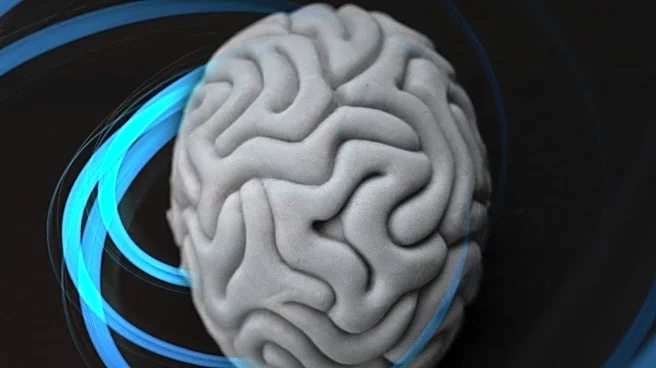What's Happening?
Researchers from the UK have developed a 'Fastball' test that could aid in early diagnosis of dementia. The test involves participants wearing an EEG headset while viewing images, assessing their brain's ability to differentiate between them. Initial studies suggest it can identify memory problems in individuals with mild cognitive impairment, a precursor to Alzheimer's. The test has been successfully administered outside clinical settings, offering potential for wider use.
Why It's Important?
Early diagnosis of dementia is crucial for timely intervention and management. The 'Fastball' test represents a significant advancement in detecting cognitive decline before it progresses to Alzheimer's. This could lead to earlier treatment with emerging drugs targeting Alzheimer's, improving patient outcomes. As dementia rates rise, innovative diagnostic tools are essential for healthcare systems to manage the growing burden effectively.
What's Next?
Further validation of the 'Fastball' test is needed to ensure its reliability and accuracy in diverse settings. Researchers may conduct larger studies to refine the test and explore its potential for routine use in healthcare. If successful, it could be integrated into regular screenings at GP surgeries and memory clinics, enhancing early detection and intervention strategies.











